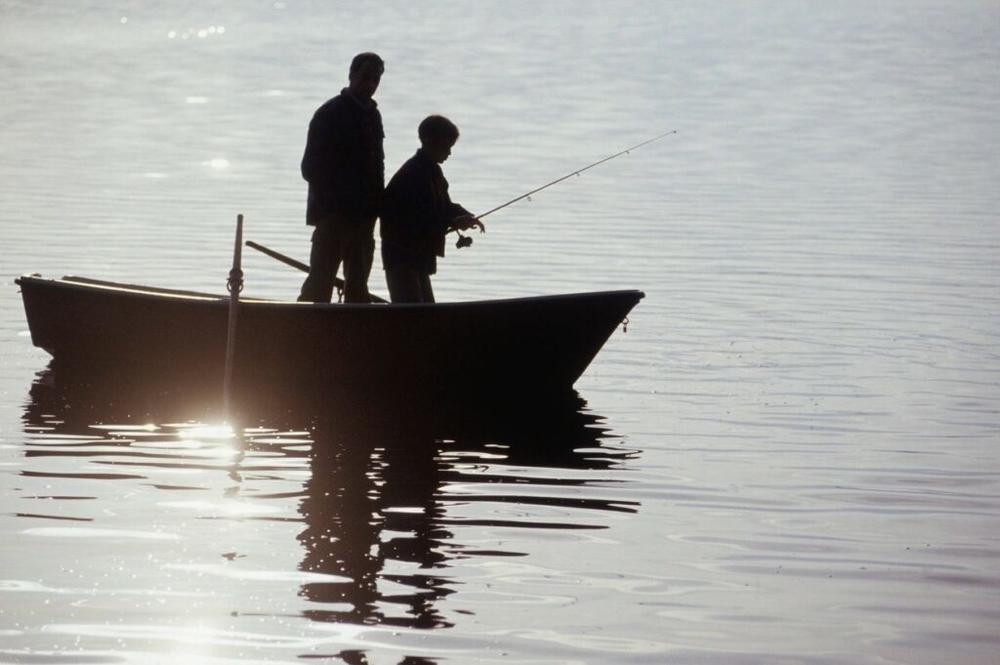
Caption
A legislative committee looks to clarify fishing rights issues in Georgia after a law's passage guaranteeing the right in 2023.
Credit: Capitol Beat News Service

A legislative committee looks to clarify fishing rights issues in Georgia after a law's passage guaranteeing the right in 2023.
ATLANTA — Georgia lawmakers passed legislation on the last day of this year’s General Assembly session guaranteeing Georgians the right to fish in navigable portions of the state’s rivers and streams.
While the public’s right to fish had been established in Georgia for generations, Gov. Brian Kemp and legislative leaders saw a need to codify it in state law after a property owner along a stretch of the Flint River known as Yellow Jacket Shoals declared fishing from the bank on its side of the river off limits. Four Chimneys LLLP sued the state, accusing the Georgia Department of Natural Resources of failing to enforce the ban.
“[Senate Bill 115] achieved a remarkable amount of clarity of [fishing] rights,” said Gordon Rogers, executive director of Flint Riverkeeper, an Albany-based environmental group that supported the bill. “What remains is where do those rights apply?”
A legislative study committee will begin meeting Oct. 4 to try to answer that question. The first of four meetings the panel has scheduled next month will take place in the small town of Gay, near the area of the Flint River that spawned the controversy.
Mike Worley, president of the Georgia Wildlife Federation, said he hopes the House Study Committee on Fishing Access to Freshwater Resources comes up with legislation giving the state Department of Natural Resources the authority to define what constitutes a navigable stream in Georgia and what does not.
“I would love to see … a map that says, ‘If you want to fish here and it’s green, it’s OK, and the ones that are red are closed to you,’ ” he said.
Worley said it’s clear from the locations of the four upcoming study committee meetings that the issue of fishing rights applies not just to the Flint River but throughout the state. The panel plans to hold two of its meetings in the cold-water trout stream country of the North Georgia mountains and a third in Statesboro, a city through which the Ogeechee River flows.
Rogers said the question of property rights versus the public’s right to fish also has come up in recent years along the Seventeen Mile River, a tributary of the Satilla River in southeastern Georgia; the Chestatee River, a tributary of the Chattahoochee; and along the Upper Ocmulgee River above Macon.
“It could blossom anywhere you have similar properties,” he said.
In fact, the legal fight over fishing already has expanded. Shortly after the General Assembly adjourned the 2023 session early last spring, a second property owner sued the state. Marker 21 LLC owns a stretch of the Flint directly across from Four Chimneys.
In a brief filed in Talbot County Superior County in July, Marker 21’s lawyers wrote that its client has a right to ban public fishing on its private property.
“The fact that some of that private property, including the river property, happens to be underwater does not negate the fact it is private property,” Brooke Gram and Patrick Silloway of Atlanta-based Balch & Bingham LLP wrote. “And because it is private property, one has no more right to stomp around the river property and take fish than one has to set up a deer stand in a farmer’s pecan orchard or cast a net into a neighbor’s koi pond.”
While both lawsuits were filed in the same area of the Flint, Worley said the issue has statewide ramifications.
“This could give practically any property owner on any stream in Georgia the right to close that stream to fishing,” he said.
Rogers said a new law setting forth a way to differentiate navigable streams from those that are not navigable is needed to prevent a flurry of lawsuits.
“What we need … to be fair and equitable to property owners and the public is to have a very clear process,” he said. “Otherwise, we’ll be in court battle after court battle.”
This story comes to GPB through a reporting partnership with Capitol Beat News Service.